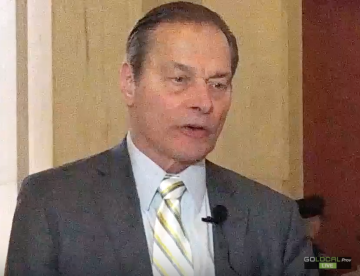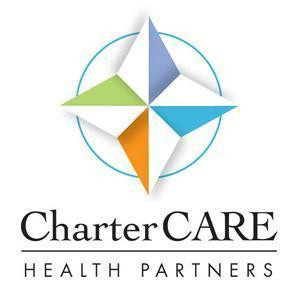St. Joseph Pension Fund Collapse—A Week of Inaction, Action, and Reaction
Sunday, June 09, 2019
It has been a week of action, inaction, and reaction in the St. Joseph pension fund collapse. The state’s largest pension failure now is nearly two years old and the members of the pension fund got their first solid win.
But, the fund faces a massive number of challenges moving forward and most concerning is that there is no word from the federal agency that regulates and insures pensions.
The pension funds 2,700 members face a shortfall of more than an estimated $118 million.
GET THE LATEST BREAKING NEWS HERE -- SIGN UP FOR GOLOCAL FREE DAILY EBLAST
Inaction
In early May, receiver Stephen Del Sesto took the unprecedented action of moving the St. Joseph Health Services pension fund to the control of the federal Pension Benefit Guaranty Corporation (PBGC). This action will force the fund to be treated under the Employee Retirement Income Security Act of 1974 (ERISA) — the federal law that sets minimum standards for most voluntarily established retirement and health plans in private industry to provide protection for individuals in these plans.
Now, a month later Del Sesto has received no word from the agency.
Action
Federal Court Judge Will Smith issued a ruling sending $11.9 million from CharterCare’s Community Board to the pension fund.
“Settling Defendants will make an initial lump sum payment of at least $11,150,000 to the Receiver. RHW will also assign to the Receiver its interest in an escrow account held by the Rhode Island Department of Labor and Training with a current balance of $750,000,” wrote Smith in his decision.
“I am very happy that the Court provided this preliminary approval,” said St. Joseph pension fund receiver Del Sesto.
“The preliminary approvals of this settlement and the Charter Care Foundation settlement are significant first steps to, hopefully, put substantial funds into the Plan so the pension holders can be better protected and they and their families can continue to rely on the benefits they worked so hard throughout their lives to earn,” said Del Sesto.
“We believe we will and look forward to obtaining final approval from the Court at the hearings scheduled for late August and early September,” he added.
Reaction
The Rhode Island Senate passed legislation that extends the Hospital Conversion Act.
The legislation is sponsored by Senate President Dominick Ruggerio.
“This legislation will help prevent what happened with the St. Joseph’s Health Services pension plan from ever happening again in Rhode Island. Extended monitoring will provide the necessary increased oversight, while stiffer penalties will work to ensure those who don’t comply with the law are held accountable,” said Ruggerio.
The bill has been sent to the House of Representatives for consideration.
The Bill
The legislation requires monitoring for hospital conversions involving non-profit purchasers, at the expense of the acquired, and extends the monitoring following a conversion from 3 to 5 years.
It also doubles penalties for failure to comply with the terms of the conversion from $1 million to $2 million.
“The passage of these amendments to the Hospital Conversion Act ensures that the Office of the Attorney General, as well as the Department of Health, have the legal and financial tools necessary to adequately monitor and enforce our conditions in future transactions. I would like to thank Senate President Ruggiero for his strong advocacy and members of the Senate for working with my office to pass this legislation, which gives us the necessary strategic enforcement tools to protect the interests of all Rhode Islanders,” said Attorney General Peter Neronha.
This bill comes after last year, when a law introduced by Ruggerio helped members of the insolvent pension plan to reach settlements in their multiple class-action lawsuits by better positioning members to reach fair, equitable settlements with the multiple defendants of the lawsuits.
Related Slideshow: 10 Shocking Elements of the St. Joseph Pension Fund Lawsuit Against the Diocese and Others
Related Articles
- Subpoena Issued to RI Foundation on $8.2M Questionable Gift Tied to St. Joseph Pension Fund Collapse
- DelSesto, Receiver for Failed St. Joseph Pension Fund, Unveils Next Steps in Investigation
- Feds Issue Subpoenas on St. Joseph Pension Fund Collapse
- Senate Passes Bill Encouraging Settlements in St. Joseph Pension Fund Collapse
- St. Joseph Pension Plan, UHIP Progress & More: This Week at the State House
- Judge Stern Shoots Down Prospect and Attorney General in St. Joseph Pension Fund Collapse
- Key Trust Document Shows Bishop of Providence Has Oversight of Failed St. Joseph Pension Fund
- Judge Slams Kilmartin for Delaying Release of Documents in St. Joseph Pension Fund Collapse
- Diocese, Kilmartin’s Legal Delays Are Increasing Costs to Recover Monies For St. Joseph Pension
- Coming Monday - INVESTIGATION: The Real Cost of the St. Joseph Pension Fund Collapse
- INVESTIGATION: Diocese Underfunded St. Joseph Pension Fund by $100 Million
- Massive Lawsuits: Lawyers for Failed St. Joseph Pension Fund Sue Catholic Church and CharterCare
- Judge Stern’s Ruling Green Lights Millions in St. Joseph Pension Fund Case, Set Back for CharterCare
- UPDATED: Court Decision Sets Stage for Up to $30 Plus Million to St. Joseph Retirees
- St. Joseph Pensioners: 18 Who Made a Difference in 2018
- Ruggerio Introduces Bills to Bring More Transparency to St. Joseph Pension Plan
- As St. Joseph Pension Fund Legal Cases Drag On, 58 Retirees Have Died and Fund is Depleting
- Kilmartin “Failed to Mind the Store” Says Receiver in St. Joseph Pension Collapse
- Diocese Fights Federal Fraud Lawsuit On St. Joseph Pension Fund - Denies Any Responsibility
- 10 Shocking Elements of the St. Joseph Pension Fund Lawsuit Against the Diocese and Others
- 900K+ Documents Reviewed in Filing Lawsuits, Says St. Joseph Pension Fund Receiver Del Sesto on LIVE
- St. Joseph Pension Fund Collects $11M, Puts Pressure on Diocese and CharterCare
- Court Delays Award of $11M to St. Joseph Pensioners After AG and Foundation Lawyers Object
- RI Senate President Voices Frustration on Fane and Makes Bold Promise to St. Joseph Retirees

























